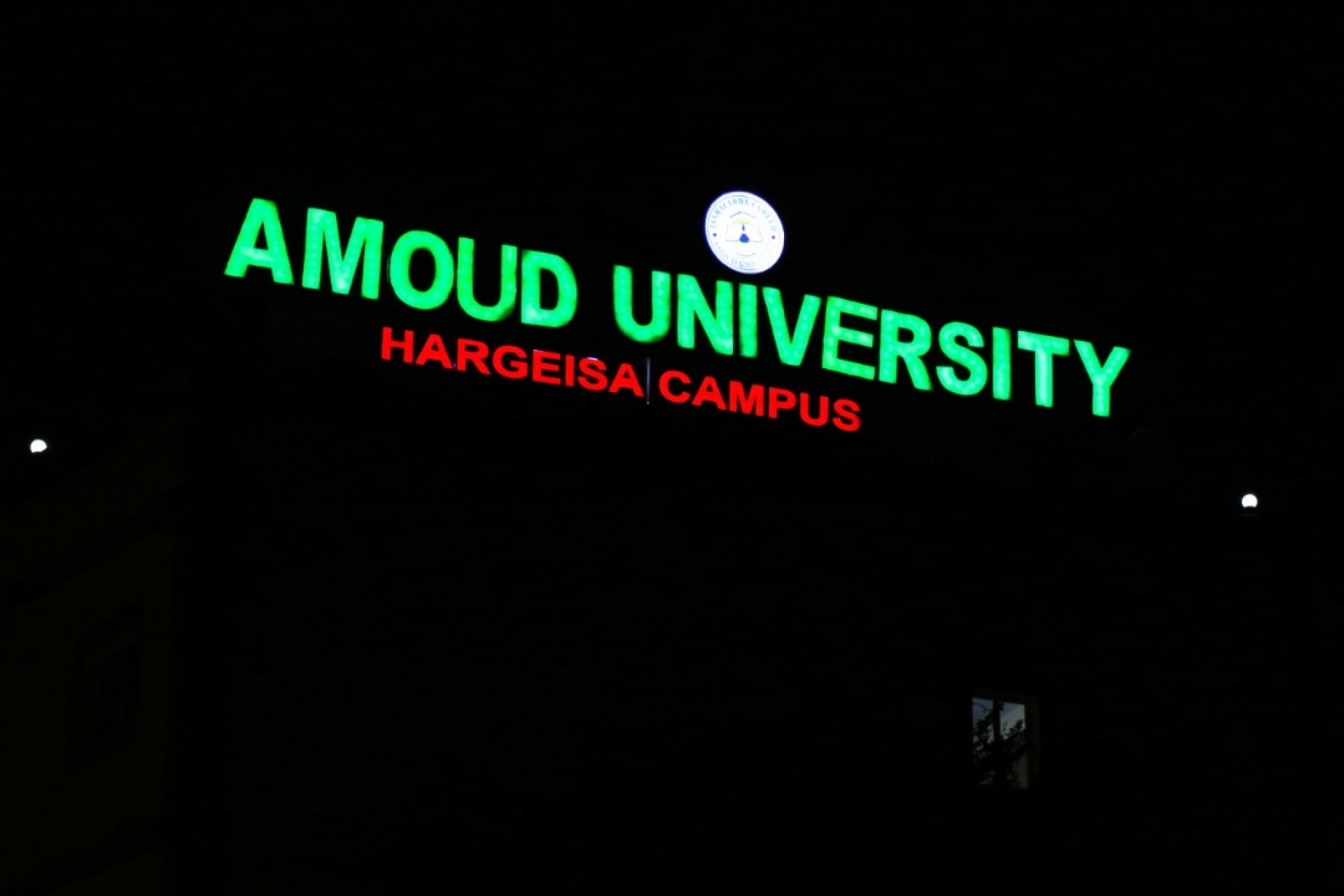1.0 Preamble
The Master of Science in Information Technology Management and Security (ITMS) program is offered by the Faculty of Computing and Informatics under the supervision of the School of Postgraduate Studies and Research. It is interdisciplinary in nature, with bias in two fields: first is, Management of Information and Communication Technologies which focuses on IT Management Principles, Legal and Ethical Issues in IT, and Management of Information Resources to empower graduates to best utilize the available opportunities to gain a competitive edge, by using ICTs as leverage. The second is Information Security which focuses on Computer, Network and Data Security and particularly operating systems security, cryptography, and intrusion detection and hacker exploits to enable graduates implement a variety of ICT strategies in the safest and most secure manner.
2.0 Programme Justification
Information Management has become a pertinent issue in all organizations, big and small, all over the world. More and more governments and organizations, whether public or private, educational, research or commercial, have continued to embrace the vital role of ICTs in spurring growth and development in various sectors. Several challenges abound in public and private sector organizations today which demand highly qualified personnel with a significant breadth and depth of understanding of the intricate needs of organizations using ICTs as a main development tool. This program is designed to meet this challenge. A major focus for this program is Service Management, a customer-focused approach to delivering information technology. Service Management focuses on providing value to the customer based on the customer relationship and providing a framework to structure IT-related activities and the interactions of IT technical personnel with customers and clients. Services must evolve in order to continue to meet the needs of the customer and respond to technological changes and advances using Service Lifecycle as the overall framework for identifying, defining, managing, and retiring IT services. There is need for graduates who are endowed with adequate competencies to meet these demands. In addition, there is need for graduates who can keep all technology within the company secure from malicious cyber attacks that often attempt to breach into critical private information or gain control of the internal systems. This masters of Science in ITMS programme should produce such graduates. Any enterprise/establishment which values its information will require services of such graduates at one time or another.
3.0 Programme Objectives
3.1 General Programme Objective
The Master of Science in ITMS is intended to increase the effectiveness of managers and executives who work with information resource to design and manage mission-critical information technologies within organizations through developing appropriate policies to maximize the benefits resulting from widespread use of technologies; while leveraging information resources to achieve strategic advantage, as well as defending information from unauthorized access, use, disclosure, disruption, modification, perusal, inspection, recording or destruction.
3.2 Specific Programme Objectives
The field of information technology requires people who have a diverse set of skills that enable them to participate effectively at all levels of information technology management. This program should produce graduates who have:
1. Adequate conceptual and technical knowledge of current and emerging technologies and who plan, design and implement IT strategies along the organizations vision and mission.
2. The capacity to quickly restore the organization’s normal operations with minimum disruption in event of an unexpected interruption or reduction in a service.
3. A demonstrable grasp of confidentiality, integrity, and availability of information security.
4. Advanced knowledge of security technologies (beyond the firewall), with ability to troubleshoot internet security issues and implement network security management and analytics with efficiency and effectiveness.
4.0 Target Groups
This programme is designed for:
1. IT Managers in private and public institutions who have a background in Computer Science, Engineering and IT and wish to employ ICTs at a management level to gain a comparative advantage or create a competitive edge.
2. Professionals already working with ICT tools who may have strong management skills but lack the technical know-how on ICTs.
3. Graduates of ICT and Information Science who wish to build their academic careers to improve their competitiveness in the job market.
5.0 Programme Resources
5.1 Programme Personnel
The programme will be run and managed by the Faculty of Computing and Informatics under the supervision of the SPGS & R. The Faculty of Computing and Informatics shall specifically spell out the desired qualifications for the ideal personnel in the outlined specialization areas. The SPGS & R by offering the framework and general guidelines for all postgraduate programmes and Faculty of Computing and Informatics by offering expert knowledge in the specialization areas of this particular programme, shall complement each other in assisting the university facilitate the acquisition of required specialized, sufficient, qualified and competent personnel who can handle this programme effectively, through hiring personnel either on full or part time basis, with each of these departments/offices playing their designated roles objectively, harmoniously and in respect of clear separation of roles, powers, knowledge and expertise through existing Amoud University policies which follow general international best practices in institutions of higher learning, befitting the stature of Amoud University.
5.2 Facilities and Equipment
The Faculty of Computing and Informatics, and SPGS & R have adequate lecture rooms that are large enough for instructional processes. The SPGS & R has a computer laboratory of its own, with enough computers and projectors specifically which have been acquired and installed for instructional purposes. The Faculty of Computing and Informatics additionally has necessary network equipment and devices; and reliable internet access.
5.3 Library
Amoud University main library has a large collection of text books and journals. The library is also equipped with Programme for Enhancement of Research Information computers connected to the Internet for staff and students to access online journals. The SPGS & R has also established its own library fitted with computer facilities to serve students in the whole postgraduate school in turns.
5.4 Funding
The programme should largely be self-sustaining in terms of funds from tuition fees and other relevant levies. The University shall provide additional funds as and when requisitioned by the Faculty and/or the School, following the normal university financial policies.
6.0 General Regulations
University regulations and guidelines for the Faculty of Computing and Informatics, and School of Postgraduate studies of Amoud University shall apply with regard to application, registration, examinations, research and graduation. A student is required to sign memorandum of understanding during the registration process as a sign of commitment or subscription and submission to the rules and regulations.
6.1 Admission Requirements
To qualify for admission into the Master of Science degree in ITMS, an applicant shall:
1. Hold a bachelors degree of at least Grade “B” of Amoud University or its equivalent from a recognized University.
2. Hold a bachelors degree of grade “C” of Amoud University or its equivalent from a recognized University; with evidence of extensive research and work related experience as demonstrated by high quality publications.
3. Hold a postgraduate diploma in information science or related field of Amoud University or its equivalent from a recognized university.
4. Meet other conditions as may be spelt out by the faculty of computing and informatics with the approval of Senate.
7.0 The Curriculum
7.1 Programme Duration
The programme shall run on a semester basis consisting of four semesters each lasting 17 weeks, or part-time as appropriately structured by the faculty of Computing and Informatics, and SPGS & R, and approved by Senate.
7.2 Enrolment Types
There shall be three (3) categories of enrolments as follows:
1. Full-Time Day enrolled students who shall attend classes between 6.30 am 12.00 from Saturday to Thursday.
2. Part-time Evening enrolled students who shall attend between 4.30 pm and 10.30 pm from Saturday to Thursday.
3. Sandwich enrolled students who shall attend during specific periods as specified by the faculty of education and SPGS & R, and approved by Senate.
7.3 Programme Modalities
The programme shall be conducted by course work, examinations and thesis, based on credit units. The last two weeks of each semester of each academic year shall normally be used for end of semester examinations. Further,
1. A student shall take foundation/general courses in scholarly skills and academic writing, research methods, data analysis and research seminars, and specialization courses in ITMS specific subject area.
2. By the end of year one, each student shall be required to submit a research proposal to the research committee for scrutiny and open hearing.
3. Each student shall come up with a well written thesis during the last year of study which will be examined by at least three (3) experts in and outside the University.
7.4 Programme Structure
The Master of Science in Information Technology Management and Security shall be structured as shown below.
| YR | SEM | Course Code | Course Title | LH | PH | CH | CU |
| 1 | I | ITM 8111 | Fundamentals of it management and security. | 45 | 0 | 45 | 3 |
| ITM 8112 | Computer operating systems security. | 45 | 0 | 45 | 3 | ||
| ITM 8113 | Scholarly skills and academic writing. | 15 | 120 | 125 | 3 | ||
| ITM 8114 | Research methods for IT. | 45 | 0 | 45 | 3 | ||
| ITM 8115 | Advance analysis of algorithm & design. | 45 | 0 | 45 | 3 | ||
| II | ITM 8121 | Computer networks management & security. | 45 | 0 | 45 | 3 | |
| ITM 8122 | Planning & management of it projects. | 45 | 0 | 45 | 3 | ||
| ITM 8123 | Design and analysis of algorithms. | 45 | 0 | 45 | 3 | ||
| ITM 8124 | Data analysis. | 45 | 0 | 45 | 3 | ||
| ITM 8125 | Advance computer network & security. | 45 | 0 | 45 | 3 | ||
| III | ITM 8131 | Internship/practicum. | 8 | 96 | 104 | 4 | |
| 2 | I | ITM 8211 | Business process reengineering (BPR) in ITM and security. | 45 | 0 | 45 | 3 |
| ITM 8212 | Simulation and modeling. | 45 | 0 | 45 | 3 | ||
| II | EPH 8221 | Web engineering & web security. | 45 | 0 | 45 | 3 | |
| EPH 8222 | Student’s thesis. | 15 | 300 | 315 | 6 | ||
8.0 Programme Assessment
8.1 University Examinations
The general rules and regulations governing Amoud University examinations shall apply. Examinations shall be conducted at the end of every semester. The end of semester examinations shall constitute 60% and coursework based on progressive assessment shall constitute 40%. For each course, the total mark shall be arrived at by adding the two of the aforementioned.
8.2 Progressive Assessment
Students shall be progressively assessed by way of assignments that include timed tests, take home essays, tutorials, practical work, seminar presentations, proposal hearings, viva voce and research manuscripts. All students are required to attend at least 75% of their respective courses in order to qualify to sit for the final examinations.
8.3 Grading System
Each course will be graded out of a maximum of 100 marks and assigned appropriate letter grades and grade points as follows:
Percentage Score Letter Grade Grade Point (GP)
85 – 100 A 4
70– 84 B 3
60 – 69 C 2
50 – 59 D 1
Less than 50 Fail 0
8.4 Progression
1. A student gets the Normal Progress (NP) status when he or she has passed all the specified courses and has obtained a GPA of at least 2.0.
2. A student is automatically placed under Probationary Progress (PP) and advised when he or she has failed a course or courses and/or the GPA falls below 2.0.
3. A student will not be allowed to proceed if he or she fails to score a GPA of less than 1.0 in two consecutive semesters in an academic year.
8.5 Discontinuation
1. A student shall be discontinued from the programme if he or she obtains a GPA of less than 1.0 for two consecutive semesters.
2. A student who overstays on an academic programme by more than four (4) academic years shall be discontinued.
3. A student can re-take a course for a maximum of two trials and failure to pass shall lead to automatic dismissal from the programme.
4. A student found guilty of examination malpractice by the University Disciplinary Committee may be discontinued.
8.6 Re-Taking a Course
1. A student may re-take a course when it is offered again in order to pass it if he or she had failed it before, or to improve on prior poor grades.
2. A student can re-take a course if he or she had passed it, but would like to improve his or her grades.
8.7 Completion and Award of Master of Science in Information Technology Management and Security
A student who has passed all courses with a GPA of at least 1.0, and has earned at least 54 credit units, and has no other outstanding issues with the University will be awarded the degree of Master of Science in Information Technology Management and Security so long as the CGPA is not less than two (2.00).
 English
English





